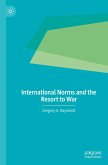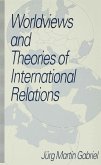The politics of legitimacy is central to international relations. When states perceive an international organization as legitimate, they defer to it, associate themselves with it, and invoke its symbols. Examining the United Nations Security Council, Ian Hurd demonstrates how legitimacy is created, used, and contested in international relations. The Council's authority depends on its legitimacy, and therefore its legitimation and delegitimation are of the highest importance to states. Through an examination of the politics of the Security Council, including the Iraq invasion and the negotiating history of the United Nations Charter, Hurd shows that when states use the Council's legitimacy for their own purposes, they reaffirm its stature and find themselves contributing to its authority. Case studies of the Libyan sanctions, peacekeeping efforts, and the symbolic politics of the Council demonstrate how the legitimacy of the Council shapes world politics and how legitimated authority can be transferred from states to international organizations. With authority shared between states and other institutions, the interstate system is not a realm of anarchy. Sovereignty is distributed among institutions that have power because they are perceived as legitimate. This book's innovative approach to international organizations and international relations theory lends new insight into interactions between sovereign states and the United Nations, and between legitimacy and the exercise of power in international relations.
Hinweis: Dieser Artikel kann nur an eine deutsche Lieferadresse ausgeliefert werden.
Hinweis: Dieser Artikel kann nur an eine deutsche Lieferadresse ausgeliefert werden.
Winner of the 2008 Chadwick F. Alger Prize, International Studies Association "Scholars do not fully understand the sources of legitimacy in world affairs or how it shapes and constrains what leaders do, but this book provides important insights by looking closely at one particular site of international authority: the United Nations Security Council."--G. John Ikenberry, Foreign Affairs "Hurd explores the intricate relationship between legitimacy and authority in world politics through an empirical study of the UN Security Council. He provides readers a most thoughtful discussion of the concept of legitimacy, explaining what it is, what it is not, and how it is exercised in world politics."--J.R. Strand, Choice "Ian Hurd's new book provides a vital contribution to the discussion with a well-specified model of legitimacy that balances a subjective, psychological definition with a structural account of legitimacy's effects."--C. Cora True-Frost, Political Science Quarterly "The book succeeds in its main theoretical objective, which is to show how constructivism and rational choice can be complementary. As such, it is essential reading for those who seek a more nuanced understanding of how social facts work in international politics."--Jennifer M. Welsh, International History Review "[T]his highly sophisticated analysis adds greatly to the literature in this field."--Aidan Hehir, European Legacy "Ian Hurd has made an important contribution ot the discourse on international relations with his book."--Patrick Kubart, Journal of International Law of Peace and Armed Conflict








